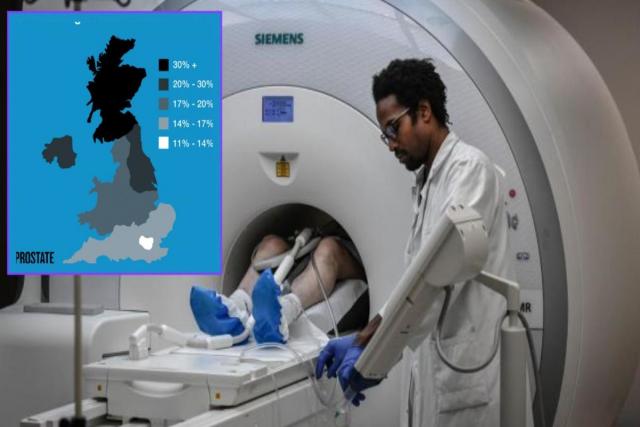There’s huge variation in the likelihood of men being diagnosed when it’s too late for a cure.
In London just 1 in 8 men with prostate cancer are diagnosed with metastatic disease, rising to more than 1 in 3 (in Scotland. Wales, Northern Ireland, and the North and Midlands of England are also shown to be badly affected.
The latest National Prostate Cancer Audit (NPCA) shows men in more deprived areas are more likely to be diagnosed too late for a cure. The reports also showed a dramatic 29% fall in the total number of men diagnosed in the first year of the pandemic, which could result in higher risk of metastatic diagnoses for years to come. Overall, almost 10,000 men each year are being diagnosed at stage 4 in the UK.
Daniel Burkey, a 57-year-old teacher from Ossett in West Yorkshire was diagnosed with incurable prostate cancer in June 2021. Daniel said: “As a person with quite high hereditary risk I just didn’t know enough about prostate cancer until I was diagnosed, and by then it had already spread to my bones.”
Daniel said: “At this stage, the treatments I’ve received are all palliative. They can keep the cancer at bay, but it can’t now be cured. That’s why I’d urge anyone who’s not sure about their own risk to take the risk checker to find out more. It’s so quick, and it could save your life.”
Prostate Cancer U.K. are calling for action to tackle these health inequalities – particularly in those worst-hit regions. Today they are launching a fresh, targeted campaign, encouraging everyone to share the 30-second online risk checker to help men understand their risk and what they can do about it.
We’re working with the NHS in these regions to help tackle these inequalities and have called on GPs to proactively engage higher risk men about the PSA blood test. We’re supporting GPs in areas of high deprivation to send targeted messages to men at the highest risk, to share the risk checker and help them make an informed choice about testing.
Laura Kerby Chief Executive, Prostate Cancer UK says:
“At one point in the pandemic, prostate cancer made up a third of all missing cancer cases, so it’s fantastic to see that we’re beginning to find and treat these men.
“However, there is still a long way to go to fully reverse the impact of the pandemic, and as these figures show our job isn’t done even then. That’s why we need a screening programme for prostate cancer, and we are committed to funding the research to make this a reality and save thousands of men’s lives.”







